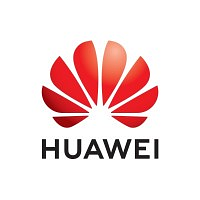
PhD intern - AI/GPU Researcher
Huawei Technologies Canada Co., Ltd.JobsCloseBy Editorial Insights
Huawei Canada is seeking an 8-12 month onsite PhD intern for an AI/GPU Researcher role in Markham, joining the Software-Hardware System Optimization Lab. You will tackle GPU system optimization for edge devices, develop efficient algorithms and models to trim compute and storage overhead, explore GPU DDK frameworks, and contribute to publications. Ideal candidates are PhD students in computer science, electrical or computer engineering, or AI, with Linux expertise, GPU driver and memory-management know-how, Python and C/C++ skills, and familiarity with TensorFlow or PyTorch, plus edge experience. To apply, tailor your CV to edge GPU optimization projects, show measurable outcomes and relevant publications, and write a concise cover letter tying your work to Huawei’s mobile AI priorities; onsite in Markham for 8-12 months.
Huawei Canada has an immediate 8-12month contract opening for an AI/GPU Researcher.
About the team:
The Software-Hardware System Optimization Lab continuously improves the power efficiency and performance of smartphone products through software-hardware systems optimization and architecture innovation. We keep tracking the trends of cutting-edge technologies, building the competitive strength of mobile AI, graphics, multimedia, and software architecture for mobile phone products.
About the job:
Engage in cutting-edge research on GPU system optimization, with a focus on enhancing performance on edge devices.
Research and develop efficient algorithms and models to minimize the computational and storage overhead on edge devices.
Researched the industry development trends and insights for the GPU DDK frameworks.
Collaborate with team members to solve technical challenges and contribute to academic paper writing and publication.
Requirements
About the ideal candidate:
Currently enrolled in a PhD program in Computer Science, Electrical Computer Engineering, Artificial Intelligence, or a related field.
Extensive knowledge of Linux operating systems, GPU driver architecture, and memory management.
Strong programming skills in Python, C/C++, and other relevant languages.
Knowledge of deep learning frameworks, TensorFlow and PyTorch.
Familiarity with edge device development, such as mobile platforms and embedded systems.
Excellent communication and teamwork skills; strong independent thinking and problem-solving abilities.